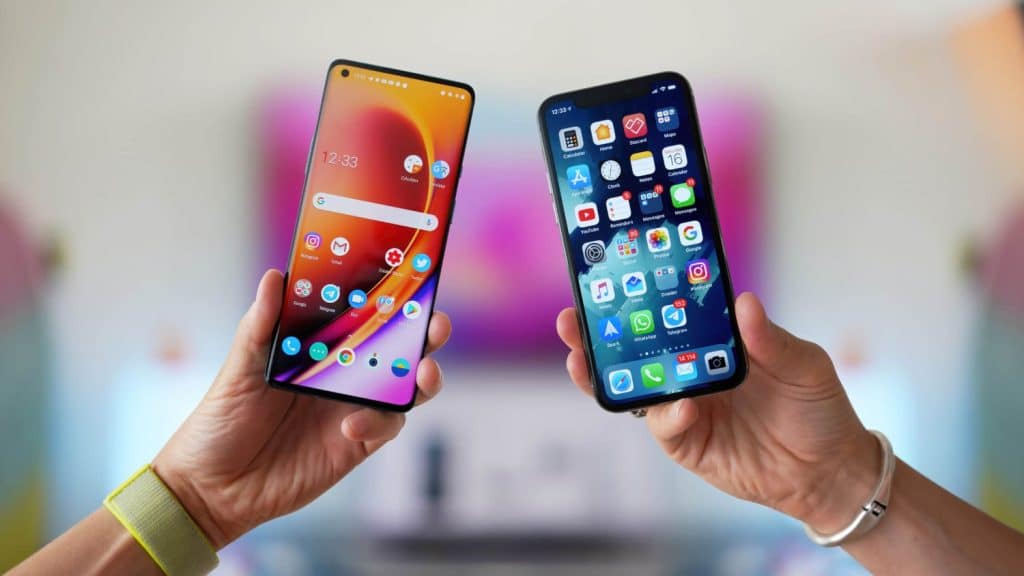apple It is Google are about to face yet another headache, courtesy of the US government: in a recent report, the National Telecommunications and Information Administration (NTIA), an agency of the US Department of Commerce, is demanding more pressure from Congress on both companies , regarding the release of third-party app storesboth in iphone how much in android. According to NTIA, both giants manage application distribution monopolies on their respective systems, controlling which apps can be officially installed, and how they should behave, undermining competition and the free market.
Google and Apple may end up forced in the US to allow third-party stores on Android and iPhone (Credit: Mr.Mikla/Shutterstock) The report published this Wednesday (1st) classifies the mobile market, divided today between Apple and Google, as a sector that privileges both to the detriment of consumers and developers, thanks to procedures and rules for the approval of applications, which can only be offered in its official stores, the Apple App Store and the Google Play Store, when following the determinations to the letter . NTIA considers that Cupertino and Mountain View manage a duopoly, acting as gatekeepers for their mobile systems, by imposing strict rules on developers for app approval, while prohibiting access to third-party app stores, or even manual installation of applications. by the user, sideloading, in the case of Apple; although Android has the feature, originally aimed at devs, Google never liked it, and goes to great lengths to restrict it. For the Department of Commerce, both Apple and Google use the excuse of “greater security” in the exclusive distribution of apps and games by their respective stores, as an excuse to favor their businesses, from where they can take their 30% quota on all sales, subscriptions (with further reduction) and in-app purchases, and even the consumer protection argument is flawed, as it could be offered in a scenario of competition between stores. Unfortunately for both companies, the NTIA argument stuck with the White House. Bharat Ramamurti, deputy director of the National Economic Council, endorsed the report and defended the position of pressing senators and representatives for legislation that would force Apple and Google to open restrictions on iOS and Android, saying the document “identifies important points and means to promote competition, and innovation, in the mobile app market”, and a positive resolution “will benefit consumers, startups and small businesses”.

Apple, Google and Epic Games Revenge
Both Apple and Google have always loathed the idea of allowing third-party stores on their mobile systems. Android is a little more flexible, and allows manufacturers to use its distribution ways, in parallel with the Play Store. This is the case of Samsung, for example. Sideloading, on the other hand, was never treated as a feature for the average consumer to use. The ability to install APK files directly was a facility offered to developers, but it allowed independent studios and creators, who were unable to get their apps and games approved, to distribute their creations directly. There are also cases of apps, in general, games, which have different versions, an official one present in digital stores, and another alternative (read for more), installable via APK. What Google doesn’t get out of it is your 30%. Both manual installation and apps distributed in third-party stores do not revert money to the search giant, and because of this, Google over the years has used strategies to deprecate sideloading, and to discourage partners from relying on third-party stores in your products. Apple, on the other hand, has always been resolute in its dislike for sideloading and third-party stores, also using the security argument, in which it argues that both “take away the freedom of choosing a safer store” from the user, but again, the issue is always revolves around money. Should the US Department of Commerce report lead to laws that force open mobile systems to third-party stores, such changes for the US market would be reflected across the globe; in the European Union, both are already adapting to the Digital Markets Law, for payments outside their stores. The most interesting thing to note is that such a decision would meet Epic Games’ wishes, after the row between the developer, Apple and Google, which led to the removal of Fortnite from the Apple App Store, Google Play Store and Mac App Store; apple even tried to ban Unreal Engine and now enemy developer accounts, but failed.

